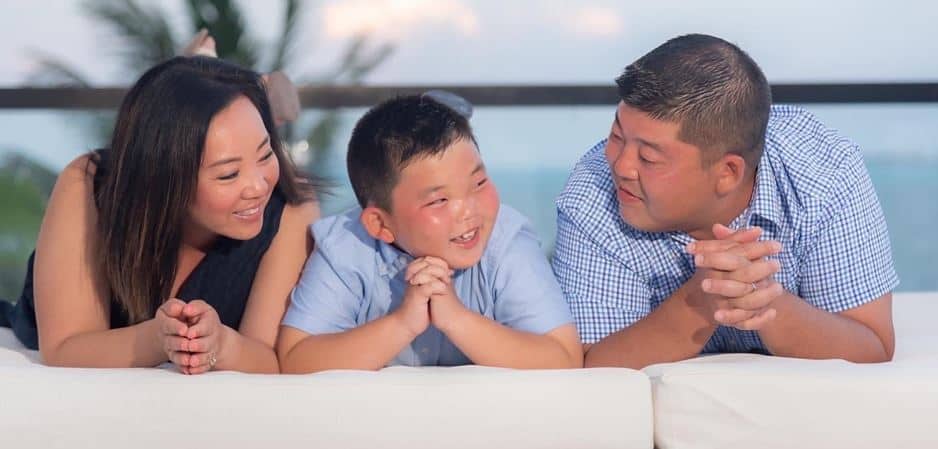
Like many people, until Eunice Nakamura received a breast cancer diagnosis, she never imagined it was something that could happen to her. “I can’t speak for all Asian cultures, but South Koreans are very into wellness and wellbeing,” said Eunice, whose parents immigrated to the U.S. “I grew up being very tuned in to wellbeing overall. We don’t have breast cancer in the family, but I had an aunt pass away from liver cancer, and we talked openly about that.”
Leading up to her diagnosis, Eunice felt fine. “I was getting dressed one morning and happened to feel a little bit of lump,” she recalled. “It wasn’t a hard mass or anything like that, but I called my primary doctor just to let her know I felt something. She said ‘okay, come in, let’s check it out.’”
Her doctor recommended a mammogram and an ultrasound. “Within a day or two, I went in and had them,” Eunice continued. “And that’s when they said’ well, it’s actually cancer.’ It just happened so fast.”
Eunice had stage 2 hormone positive HER2 negative breast cancer. “It was surreal. I’m an attorney by trade, so I compartmentalize really well,” she said. “I just took the news in. I’m not saying it wasn’t hard, it certainly was, but I think I just kind of faced it head on.”
Eating healthfully and being aware of risk factors and overall health has always been a part of Eunice’s lifestyle. “It’s the idea of preventative wellness,” she said. “Growing up, you knew about your health, what’s going on with your body, what you could be susceptible to. And even still, you can get cancer.”
Eunice’s family has a deep faith, so when she told them about her diagnosis, they prayed together. “Then it was okay, we’re going to get through this, let’s form a plan and execute it,” she said. “Of course, telling my 8-year-old son was the hardest. I think he automatically thought I was going to die. But now he’s very educated about the process.”
Her treatment included two lumpectomies, 16 rounds of chemotherapy and 33 rounds of radiation therapy. Eunice recently completed treatment and scans show no evidence of disease.
Even living a healthy lifestyle, breast cancer can happen to anyone, and Eunice is keenly aware of the importance of regular screenings and mammograms. “Even after my diagnosis, I tell my girlfriends to get their mammograms, and they’ll say, well, I don’t have it in my family,” she said. “And I’m like, well, I didn’t either. You can be as vigilant as possible, know all of the risk factors and it can still happen. You can’t use living a healthy lifestyle as a crutch. You still need to go and get checked for breast cancer. You have to get your mammograms.”
May is Asian American Pacific Islander (AAPI) Heritage Month. Breast cancer is the second leading cause of cancer death in Asian American and Pacific Islander women. Although Asian American women in the U.S. have similar screening mammography rates as Black, white and Latinx women, they have more delays in follow-up care after an abnormal mammogram than white women. Raising awareness of the importance of cancer screening and follow-up care after mammography for those in the AAPI community is an opportunity to advance health equity for all.



